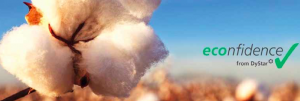
For most major apparel brands and retailers, management of color from
design to delivery or from inspiration to realisation is a complex and
time-consuming task.
Color palettes change on a more or less frequent basis depending on
whether it is fashion apparel, sportswear or lingerie that is
produced. For retailers with independent brands or department
management it is often the case that separate palettes are required to
cover babywear, women’s fashion, men’s fashion, sports or casual
clothing, etc. Color is a crucial element of brand identity and
consumer appeal. It’s important to create unique color stories for
your brand, but it’s also essential not to miss the latest color
trends picked up from the fashion and fabric shows from Shanghai to
San Francisco, from Stockholm to Singapore.
Now a whole new set of sustainability issues have been added in on top
of the existing requirements of brands and retailers as they seek to
build customer trust and meet stakeholder expectations. No longer do
they only have to care about what is made but also how and where it is
made. The need for traceability and transparency in supply chains is
driven primarily by consumers, legislators, NGOs, the media and
investors. Social networking, smart phones, apps, blogs and tweets
have built instant connectivity around the globe so that bad news
travels fast. When you mess up, you can’t keep it under wraps any
more.
 So now you also have to worry about the carbon footprints and water
So now you also have to worry about the carbon footprints and water
footprints of your products, and understand the difference between
Life Cycle Assessments and Product Lifecycle Management. Knowing who
is in your supply chain and what they contributed to your product is
becoming the major challenge of the 21st century.
Three common failures can be very easily identified:
• Wrong color – color failures cost time and money
• Damage to Brand Integrity – potential damage to reputation and stock price
• Unhappy customers – lose brand loyalty and tell their friends
So how can DyStar help?
DyStar has a unique approach to the textile supply chain. It not only
works with brands and retailers at the design and specification stages
of product development but also with the mills that process the
fabrics that are required to meet the shade, fastness and ecological
requirements of any given product line.
What are the elements of the DyStar offer? Color Solutions
International creates color inspiration, communication and realisation
tools for many or the best known apparel retailers and brands in the
fashion and sportswear sectors. CSI provides detailed recipes for each
of the individual engineered color standards which use dyes and
chemical auxiliaries covered by DyStar econfidence commitment.
econfidence from DyStar ensures that for every product on the range
there is an eco specification in place to check for the most likely
chemical contaminants which may be subject to legal or commercial
prohibition or restriction. It is the DyStar commitment to keeping
undesirable hazardous chemicals out of customers’ supply chains.
DyStar offers the highest standards of hazard communication at a
global level so the wet processing mill has access to the same level
of data, no matter where in the world it is located.
Where a brand or retailer has an RSL or is required to operate in
compliance with REACH or CPSIA requirements, for example, then DyStar
can select recipes based on RSL-compliant and REACH pre-registered
products from its global ranges, and CSI produces fully eco-compliant
standards.
Through its sustainable Textile Services, DyStar assists brands &
retailers in the communication of their RSL requirements back up the
supply chain by means of joint vendor seminars and training, factory
audits and individually-tailored product evaluation documentation
describing the suitability of DyStar products in meeting the
requirements of the RSL. The service support to mill customers ensures
that they are using Best Available Technology for wet processing using
state-of-the-art products from DyStar designed to reduce the
environmental impact of the coloration and finishing processes.
DyStar is committed to helping the whole of the textile supply chain
achieve its sustainability objectives.